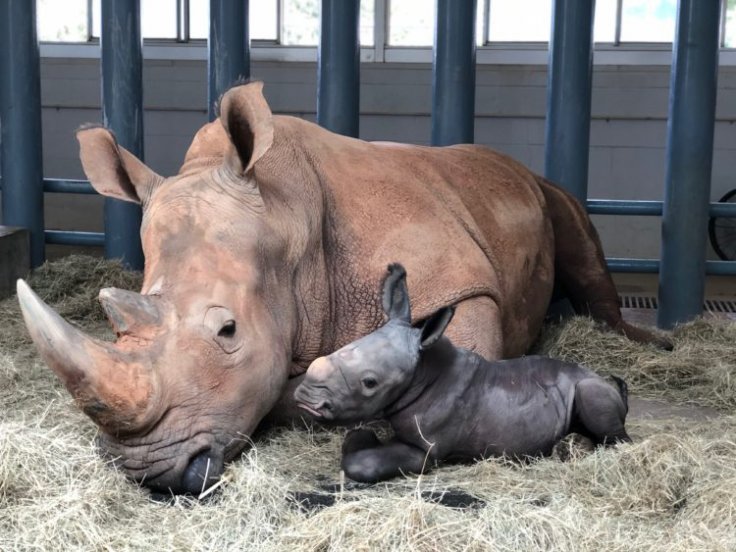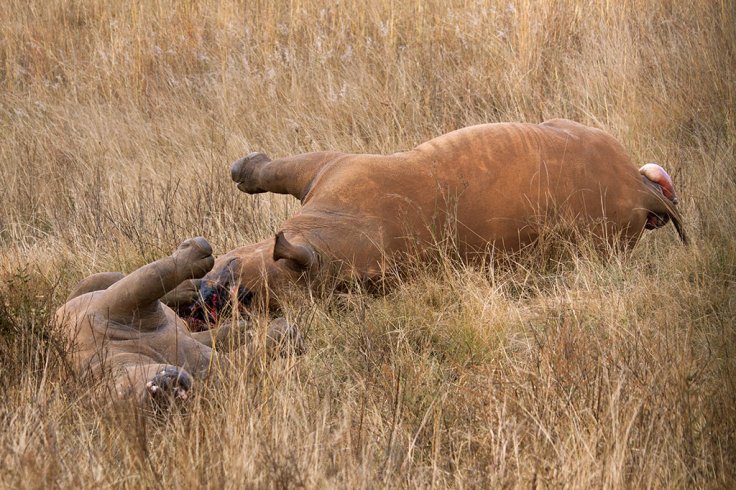In midst of election tension, protests, conspiracy theories, social media battles, political and legal drama in the US, Disney's Animal Kingdom Theme Park in Florida welcomed a baby white rhinoceros—which is a "near threatened" species, according to the World Wildlife Fund.
The park is located in Florida's Bay Lake, near Orlando where the mother rhino, named Kendi gave birth to a male calf after a 16-month pregnancy. Kendi was the first rhino to born at the animal park, back in 1999 and the birth of her child marks the 11th white rhino at the Walt Disney World Resort.
As per a press release from the park the yet-to-be-named calf and the mother, both are doing well under keepers' observation. "While rhinos are gregarious by nature; for now, the calf is resting, nursing and bonding with his mom," the park said. The baby is expected to join other rhinos on the park's savanna in the coming weeks.

The Future Plan
Kendi was paired with a male rhino, Dugan through one of the Species Survival Plans overseen by the Association of Zoos and Aquariums to ensure the responsible breeding of the threatened species.
An animal care team is also looking after two female rhinos who are expected to give birth in 2021. Such initiatives are extremely important for the white rhinos who are the second-largest land mammal in the world with "Near Threatened" status.
As per the WWF, the majority of these species occur in just four countries which are South Africa, Zimbabwe, Namibia, and Kenya. As per the non-profit organization, the southern white rhinos were thought to be extinct in the late 19th century, but in 1895 a small population was found in South Africa. The current existence of white rhinos is a huge conservative success story, as it was brought back from the brink of extinction—thanks to a century of protection and management.
Is the Threat Gone?
No, their population is still a concern and the current surge in poaching for their horns has been growing in the past few years. Along with poaching, the illegal trade of the species has increased since 2007—and because of these the rhinos are still considered endangered today.

Poaching of one rhino horn can cost more than $237,000 and its black market demand is very high. Economic and political instability can also increase such incidents, even though rhino horn trade has been banned under the Convention on International Trade in Endangered Species since 1977. In Vietnam, the purchase of rhino horns is a sign of someone's wealth and success as well as a symbol of high status.








